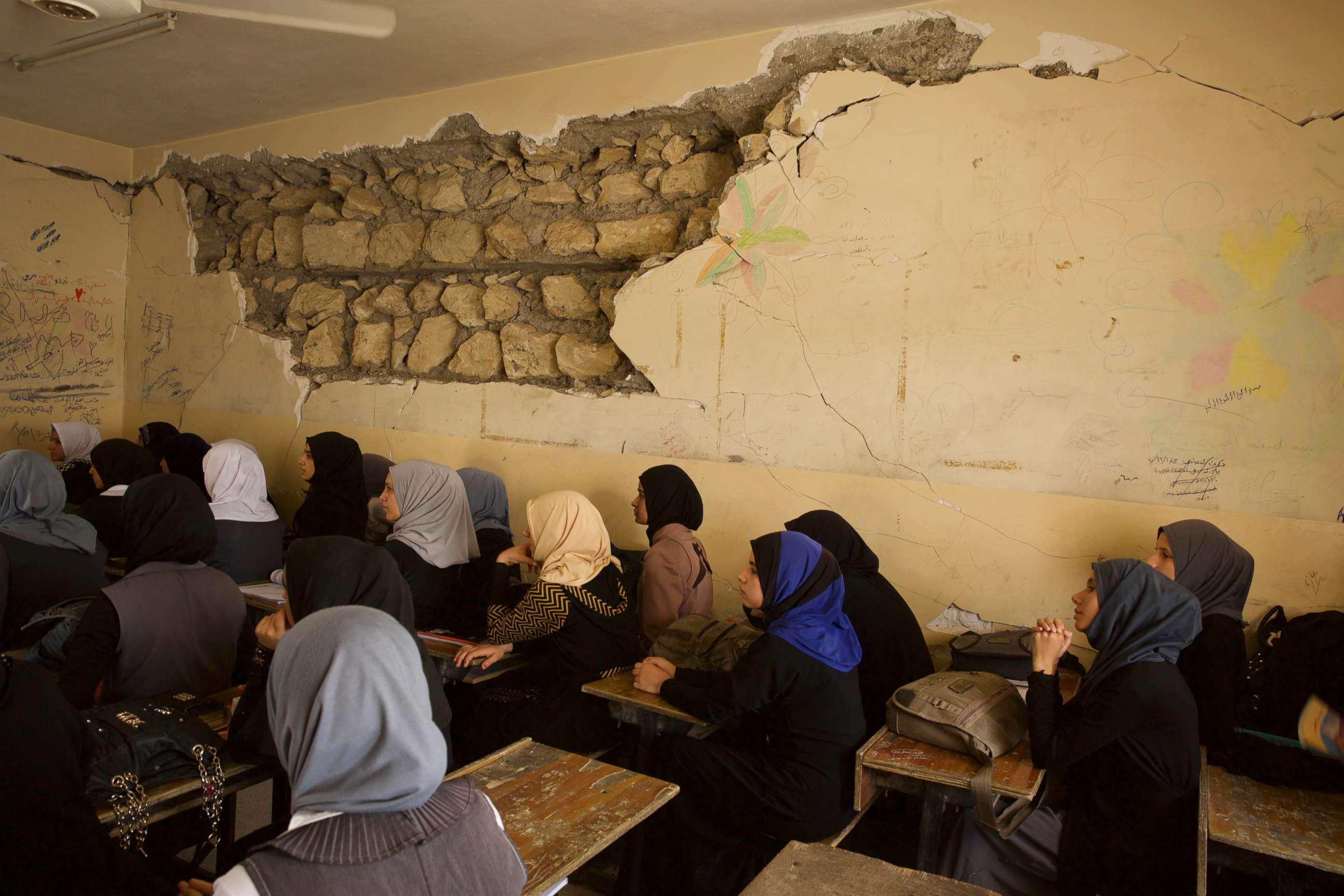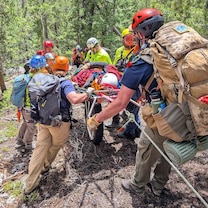Mosul's children return to school after ISIS defeat: 'We are not giving up on learning'
In West Mosul, 110 schools have reopened to welcome nearly 81,000 children.
— -- Three years ago when Rauiya Saed was in the third grade, ISIS militants took over her neighborhood in West Mosul and closed the school. But at home, the Iraqi girl kept on reading and writing.
In her diary, she wrote about life under ISIS -- about other children who were starving while living under siege and about the restrictions the terrorist group imposed on her family's way of life.
“I was seeing children who were dying from hunger and couldn’t even get milk to drink,” Rauiya, 11, told ABC News by phone in her native Arabic. “I wanted to play with my friends, but I couldn’t. I wanted to go to the market and wear colorful clothes, but I couldn’t. We needed a lot of things and were prevented from the simplest things under ISIS.”
When her city was under ISIS control, she had to cover her hair and wear the required black “abaya,” a robe-like dress, she said. She rarely left the house because it was too dangerous outside.
But today, she goes to school in her uniform: a white shirt with a blue skirt.
“I am very happy,” said Rauiya, who started the sixth grade after her school reopened. “After three years without school, I want to learn so that I can rebuild my country.”

Since Iraqi Prime Minister Haider al-Abadi declared victory over ISIS in Mosul in July, a sense of normalcy has returned. In West Mosul, 110 schools have reopened to welcome nearly 81,000 children, about 36,000 of them girls, Laila Ali, a media officer with UNICEF in Iraq, told ABC News.
After ISIS seized control of Mosul, Iraq's second largest city, in 2014, many schools were shut down and used as headquarters for ISIS fighters. Ali and local educators said many parents also chose to keep their children at home because they feared that they could be indoctrinated. This meant that children spent most of their time at home -- often in the basements while hiding from airstrikes during the nearly nine-month-long offensive to retake the city.
“No child should witness what the children in Mosul have been forced to endure,” Ali said. “For them to be back in the classroom, the simple act of putting on their backpacks and walking to school in groups of two or three with their friends and playing in the school courtyard, this is what they have been missing out on. For many of the children, this in itself is a form of therapy: learning, playing and interacting with your friends and being in a safe environment.”
More boys than girls went to school when Mosul was under ISIS control, Ali said. Many girls were prevented from attending school because the distance between their homes and their schools became longer when the local girls’ school was converted into a school for boys, she said. Walking to school became increasingly dangerous.
“A lot of the parents feared that their daughters would be harassed or that they would be identified as brides for the fighters, so they preferred to keep their children at home,” said Ali.
It has taken longer to reopen schools in West Mosul than in East Mosul, where 437 schools have reopened and 450,000 children have returned to the classroom. The reason is that damage to schools in West Mosul is more widespread, said Ali. Many neighborhoods in West Mosul are also difficult to access because of the landmines, improvised explosive devices and booby traps that remain there.
Rauiya’s school was used by ISIS fighters as a headquarters and shelter from airstrikes before it reopened, so damage there is extensive, according to Enas Hisham Al-Imam, a teacher at the school.
“There were several ISIS families inside the school,” Al-Imam told ABC News by phone in Arabic. “They used the classrooms as homes.”
Al-Imam said she taught at the school before ISIS seized control of the city. Under ISIS rule, she was one of five teachers the group forced to stay on to teach their fighters' children. If she had refused, she would have been interrogated and then taken to an unknown place, she said. She and the other teachers were forced to teach lessons that were in line with the group's ideology, but Al-Imam said she tried to be creative. For example, if a math problem in an ISIS book included a word such as "infidels," she would replace it with something less political such as "apples."
"I wanted to try to not make the children love fighting and killing even if they were children of ISIS fighters,” Al-Imam said, adding that she was one of the first teachers to help reopen the school after Mosul was retaken from the group. “When I go to the classroom, I’m happy because we got rid of ISIS, a terrorist organization that we don’t wish on a friend or an enemy."
All of the school's windows and doors were destroyed by airstrikes during the U.S.-backed campaign to retake Mosul, Al-Imam said, and there’s still rubble inside and outside the school. The school doesn't have electricity, which means that the heat can be unbearable. Since many schools have yet to reopen, classrooms are crowded and children must share both books and seats, she added.
Many students are eager to be back in the classroom, but are also academically behind, Ali said. Some have forgotten what it’s like to be in school after three years of violence, and it can be a struggle to get them to listen and participate. But the enthusiasm from students, teachers, and parents helps smooth out many of those problems, Ali added.
Many of the teachers who weren't forced to teach the children of ISIS fighters haven't worked for three years. Until recently, teachers were working without pay because the central government had stopped paying civil servants out of fear that ISIS fighters would extort money from them, Ali said.
“But day after day, these teachers continue to show up,” Ali said. “And you have parents in other communities where schools have yet to open making calls and saying, 'We’re waiting for schools in our neighborhood to open.'"
Rauiya said that it’s difficult to stand up during lessons when there aren’t enough chairs and that the heat sometimes gets unbearable without electricity. But she is determined to continue her education so she can become a plastic surgeon and help those who have been affected by the violence.
"I want to help people who were injured and have scars from the war and who lost legs in the war in our country," she said. "We are not giving up on learning."




